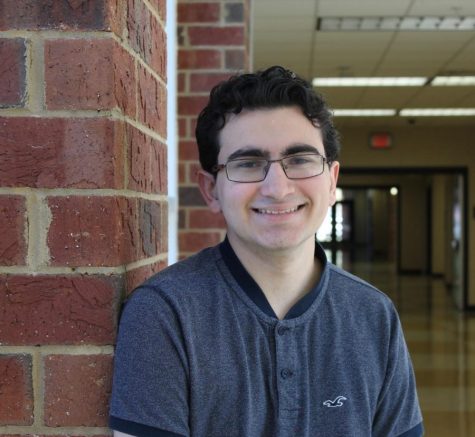Behind the Desk: Teacher Thoughts on the Grading Policy
February 24, 2021
This school year, already radically unorthodox, has had its mechanics and methods change time and time again, and the second semester heralded yet more changes.
While students deliberated whether to go in-person or online, or begin to make use of the new free school lunches, another shift happened behind the scenes, deep in crevices of Infinite Campus: the grading policy.
The grading policy, changed at the beginning of the school year to adapt to the new circumstances of COVID-19, has been drastically altered once more.
This new policy has been in use for about a month now, and its effects are starting to show as students get back into the flow of receiving and turning in assignments.
But who is on the other end of that assignment, the other group the grading policy affects so much? Teachers. Being responsible for their students’ education, a shift in how they grade is a large and important change.
Among the changes made between the policies is the re-addition of formative grades. Last semester, formatives had a weight of zero, meaning they had no effect on the final grade. Only summative assessments counted, and even the final exam was treated as any other summative.
This semester, though, formatives are back, to a mixed response from teachers.
English teacher Randy Gingrich is fine with having them and believes there are assignments that should count as formatives, though he enjoyed having only summatives in his AP classes, which he said more accurately represented the college experience.
His issue comes with their impact on grades. Last semester, they formally counted for nothing, while this semester, they do count. However, another part of the grading policy damages this intent: course completion.
To exempt a final, a student must complete all coursework, and incomplete coursework is entered as a 1 in the gradebook. All ones become incompletes on May 13, and incompletes do not affect the final grade like ones do.
Students must complete 80% of summatives to pass a class, but no such requirement exists for formatives. This means a student could theoretically not do any formative work and wait for May 13 for it to not count, with the only disadvantage being the inability to exempt the final.
Social Studies Department Chair Mark Schuler said, “students are jockeying to figure out loopholes,” and Gingrich sees this as one of them.
However, it does not appear his students are exploiting this much, with Gingrich saying about 80% of them have completed all their work up to now.
Although Schuler doesn’t like giving 1’s, he said it’s a wake-up call to students. The fear of having a 1 dragging down their grade, even if it won’t have an effect in the end, could be enough short-term motivation to finish the work.
Formatives count again, then, but for how much? The answer is: it depends. Another new feature of the grading policy is that the weight of each grade category (formatives, summatives, homework and final exams) varies from class to class.
The members of each department have generally tried to synchronize the weights within themselves, but this still means a summative in physics class counts differently from a summative in English.
That is how teachers grade students’ work, but they can’t do that without them being there for the work in the first place, a constant threat among online students. That is what the participation-based attendance policy is about.
To be marked present, online students are required to engage with the class or material in some way as decided by the teacher. Despite the name, this doesn’t necessarily mean attending class. Gingrich’s policy is focused on whether the student does the work.
“Are they turning in the assignments, are they contacting people, are they working in their groups?” he said, following it up by saying it’s not his concern if they log off early or aren’t constantly there, so long as they do what they need to.
Other classes and teachers use different methods, and a class more focused on teacher presentation may put more emphasis on being present.
According to Assistant Principal Darius Maize, the grading policy was changed for the second semester, incorporating advice, complaints and feedback from students, parents and teachers. The changes the new policy brought reflected those comments.
Even so, there is still fear among teachers of yet more changes and additions, Schuler said. The threat of the school district coming down to implement yet another modification is ever-present.
Schuler said the many changes which were made last semester motivates this fear. Case in point, the district is on its fourth retake policy since the beginning of the year.
Hence, the possibility of something similar occurring again has made teachers like Schuler skeptical of the current policy’s staying power.
Despite this, in the month since its implementation, the policy has remained static, with no mid-term modifications.
While individual aspects of the policy may be controversial, Schuler said he believes it is, as a whole, workable, or at least better than last semester.
